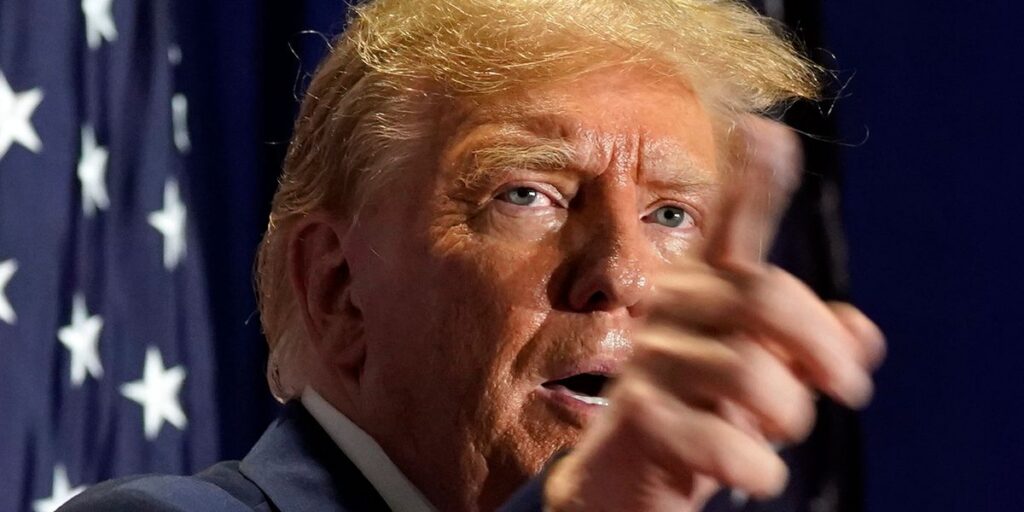As American voters make the decision to return Donald Trump to the presidency, the onus falls on congressional Republicans and the Supreme Court to prevent potential abuses of power. Despite past evidence of Trump’s inclination toward autocratic tendencies—expressed through threats to utilize the Justice Department and military against political adversaries—there is little indication that these institutions are prepared to act against him. Joe Walsh, a former Republican congressman, underscores a troubling dynamic within the party, suggesting that the majority of Republicans will likely become more submissive to Trump’s will, amplifying his power while diminishing accountability. The historical context of Trump’s tenure compounds these concerns, particularly with the limited number of GOP members willing to stand against his actions, whether during impeachment proceedings or in the aftermath of the January 6 insurrection.
Trump’s previous efforts to undermine democratic processes, including pressuring Ukraine to aid his re-election bid and attempting to cling to power following a violent coup, encountered surprisingly minimal opposition from his party. Notably, during his impeachment trial, only one Republican senator sided with Democrats, while after the January 6 attack, only 17 Republican representatives supported impeachment. These instances illustrate a pattern of Republican complicity that raises alarms about the broader implications of a second Trump administration. The U.S. Supreme Court has also waded into protective territory for Trump, granting him presumptive immunity from criminal prosecution for actions deemed “official.” This ruling risks setting a precedent that could further erode the checks and balances typically provided by the judicial branch in holding government officials accountable.
The prospect of Trump’s return is compounded by concerns about the type of candidates he will appoint to key positions in his next term. Unlike his original cadre of advisers—all of whom were primarily mainstream Republicans—Trump’s subsequent appointments are expected to lean towards individuals who possess unwavering loyalty to him rather than adherence to constitutional principles. As Walsh articulates, Trump’s capacity to retain power after attempting to overthrow the government sends a troubling signal, suggesting that Republicans may actively engage in further undermining the Constitution. Critics fear this will create a government structure where loyalty supersedes the rule of law, a disturbing reality that many perceive as an imminent threat to democracy.
Olivia Troye, a former national security aide in the Trump administration, echoes these sentiments, cautioning that Congress and the judiciary may not act effectively against his potential overreach. She warns of an administration populated by individuals who are loyal to Trump rather than the Constitution. This loyalty-driven selection process poses risks for the integrity of governmental positions, particularly within national security and the Justice Department. The expectation is that Trump will selectively appoint advisors and officials who not only support his agenda but also possess a willingness to sidestep traditional checks if it serves his interests.
The implications of Trump’s anticipated governance reveal a departure from the normative functioning of American democracy where branches of government typically balance one another. In a traditional scenario, one would expect Congress and the courts to act as barriers against presidential overreach. However, the reality of a Trump administration—characterized by his disregard for the rule of law—creates a precarious situation. Troye warns that the usual guardrails within the political system may collapse under a second Trump presidency. This disregard for established norms will not only challenge the principles of self-governance, but may also fundamentally alter the nature of executive power in the U.S.
Ultimately, experts predict that Trump’s second term may lead to a profound transformation in governance, foreshadowing an era where loyalty eclipses legality and ethical standards. Political operatives are already preparing proactively for this outcome, with organizations like The Heritage Foundation assembling a roster of ideologically aligned candidates for thousands of political appointments. Without the intervening force of a vigilant Congress or a principled judiciary, it appears the risks of Trump’s authoritarian impulses going unchecked are alarmingly high, leaving the fabric of American democracy under significant threat.

